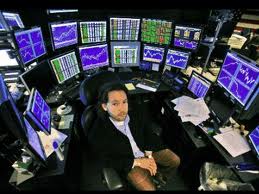Hedge Funds
What are Hedge Funds? Hedge funds are a collection of funds from several investors that are pooled together and used for strategic, high-risk investments. The aim is to spread the risk and aim for higher returns than each constituent investor could ordinarily have made on his or her own.
History of Hedge Funds
 Hedge funds can trace their origins to 1949 when Alfred Jones used the term to describe the investment fund that he founded the same year. This firm, A.W. Jones & Co, started out with $100,000 pooled from several of Alfred Jones’s friends and himself, with which they invested in stocks, going long when they though the stocks would rise and short-selling same when they thought that prices would drop.
Hedge funds can trace their origins to 1949 when Alfred Jones used the term to describe the investment fund that he founded the same year. This firm, A.W. Jones & Co, started out with $100,000 pooled from several of Alfred Jones’s friends and himself, with which they invested in stocks, going long when they though the stocks would rise and short-selling same when they thought that prices would drop.
By the beginning of the 1960s, the performance of this hedge fund had started to draw attention. Particularly striking was the effect of pooling funds together and using leverage, which had the double effect of spreading the risk among the investors (and thus lowering the risk to each individual investor), as well as using leverage to compound returns. Before long, other investors in the market had started copying this model and other hedge funds began to spring up, including the Quantum Fund founded by George Soros which has now served as the model of hedge fund investment worldwide with the outstanding returns that this fund has achieved over the years.
The word “Hedge Fund” actually means a “hedged fund”, according to Alfred Jones himself, describing the motivation that led to the formation of A.W. Jones & Co. as a way of using carefully structured long and short positions to protect against adverse market conditions.
A lull ensued in the 1970s as a result of the economic downturn occasioned by the oil boom and bubble, and hedge funds literally went out of fashion until the mid-80s when the performance of a few hedge funds rekindled interest in them. Today, there are more 9,000 hedge funds worldwide holding close to $2 trillion in assets. The holdings of these hedge funds are actually larger than this figure because their investments are leveraged. The legendary Black September short on the British Pound by the Quantum Fund was a highly leveraged trade that could have bankrupted the Quantum Fund if it had failed, but in the end, it made the fund participants much money.
The World’s Largest Hedge Funds 2013
Today, some of the world’s largest hedge funds control a great percentage of the money in the financial markets. Some of these funds are as follows:
a) Bridgewater Associates: Founded by Ray Dalio and headquartered in Westport, Connecticut, this hedge fund is now regarded as the world’s biggest hedge fund with a total portfolio of $77.6 billion.
b) The Man Group: Founded by James Man, this London-based hedge fund now manages a portfolio of $64.5 billion.
c) JP Morgan Chase Asset Management: Currently headed by Mary Erdoes and located in New York, this hedge fund presently boasts of $46.6 million in assets.
d) Brevan Howard Asset Management: Founded by Jean-Philippe Blochet and Alan Howard, a tidy $36.6 billion sits in this hedge fund’s portfolio.
e) Och-Ziff Capital Management Group: Headed by Daniel Och, this New York hedge fund that employs a multi-strategy investment style has a portfolio of $28.5 billion.
f) Paulson & Co: Even though this hedge fund was recently hit by some drawdowns on its portfolio, it still has about $28 billion sitting pretty in there.
g) Blackrock Advisors: Headed by Larry Fink and Robert Kapito, this hedge fund’s $27.7 billion portfolio puts it in the number 7 position on our list.
h) Winton Capital Management: Founded by Dave Harding, this hedge fund which operates out of London has $27 billion in its portfolio.
i) Highbridge Capital Management is headed by Henry Swieca and Glenn Dubin and currently manages $26.1 billion. The fund operates out of New York.
j) Blue Crest Capital Management is headed by Michael Platt and Bill Reeves, and boasts of a portfolio of $25 billion.
Investing in Hedge Funds
The hedge fund arena is not for small time players but is where the big dogs with loads of cash play. So if you have the money and are willing to take the plunge, you can do some research on a hedge fund that will meet your investment goals. Usually, an intending investor will be made to fill out a very long questionnaire where a number of questions regarding your investment history and net worth will be asked. Usually, the starting point for hedge fund investing is $1million, though some bigger hedge funds will ask for more. Hedge funds typically make very highly speculative trades and the regulators typically do not provide much oversight, so hedge funds are what you may call, self-regulating and they need to be sure that the right kind of investor is admitted into the fund.
If you do not have the money to invest in a hedge fund, you can invest like a hedge fund by mirroring their asset allocation and portfolio investing techniques. Before you do this however, you must ensure that all participants in your investment club have the correct risk appetite needed for the speculative nature of these investments.